Mass General Cancer Center Announces First Recipients of Krantz Awards for Cancer Research
The inaugural class of awardees will receive more than $6 million in funding to accelerate groundbreaking cancer research.
Krantz Family Center for Cancer Research
The Krantz Awards — the hospital’s most significant internal funding opportunity for cancer research — were established in 2023 to fundamentally change how cancer is diagnosed and treated at Mass General Cancer Center and beyond. In supporting the visionary efforts of the Krantz Center faculty, the awards are expected to accelerate research and drive cancer discovery across the institution and generate a seismic shift in the treatment of cancer for patients around the world.
Meet the 2024 Krantz Award recipients below.
Boosting immunotherapy response while eradicating toxicity
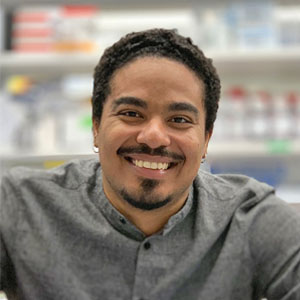 Lloyd Bod, PhD
Lloyd Bod, PhD William L. Hwang, MD, PhD
William L. Hwang, MD, PhD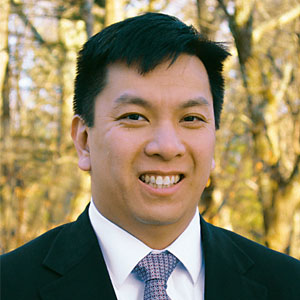 David T. Ting, MD
David T. Ting, MD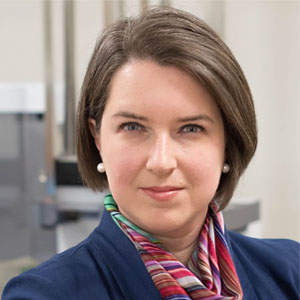 Alexandra-Chloe Villani, PhD
Alexandra-Chloe Villani, PhDImmune checkpoint inhibitors (ICIs) have revolutionized cancer treatment in the U.S., with 80 FDA-approved therapies for use in more than half of cancer patients. But there’s a tradeoff: potential damage to healthy cells and tissues. While they work to attack tumors, immune checkpoint inhibitors can trigger severe immune-related adverse events (irAEs) that affect any part of the body. These reactions can occur in up to 90 percent of patients, depending on the treatment and the dosage, and can sometimes be lethal. But this ambitious immunotherapy initiative is aiming to dial up the effectiveness of the immune system and reduce those side effects, leading to more precise and safer cancer treatments.
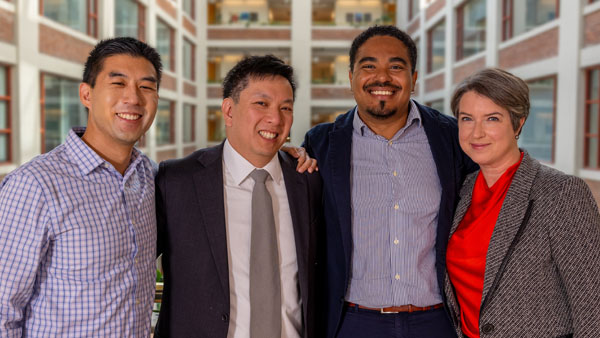
This cross-disciplinary collaboration brings Drs. David Ting and William Hwang (who specialize in spatial transcriptomics, in which individual cancer cells and immune cells within a tumor can be interrogated to understand their specific function) together with two immunology colleagues: Dr. Lloyd Bod, who studies how immune B cells are involved and can be harnessed in cancer immunotherapies; and Dr. Chloe Villani, co-director of Mass General’s Severe Immunotherapy Complication Service, who is building a comprehensive roadmap of the human immune system to decipher how immunity is dysregulated by disease and immunotherapy.
Together, these physician-scientists and researchers are seeking to better understand the potentially life-threatening complications that can accompany the most successful cancer immunotherapies, seeking to separate the benefit from side effects, and enhance the successful treatment of multiple different cancers.
Using spatial profiling to uncover immunotherapy resistance in brain tumors
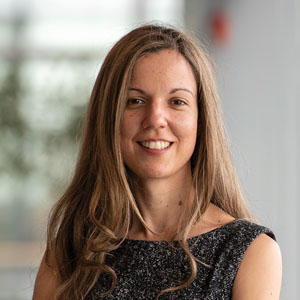 Priscilla Brastianos, MD, PhD
Priscilla Brastianos, MD, PhD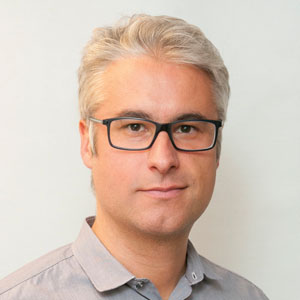 Mario L. Suvà, MD, PhD
Mario L. Suvà, MD, PhDCancers of the brain have long been associated with a poor response to conventional therapy, but immunotherapy is providing new hope for effective treatments. The Brastianos Lab has an established reputation as world-renowned experts in the analysis of cancers that metastasize to the brain and understanding their distinct genetic makeup and potential vulnerabilities. The Suva Lab has made major discoveries in the understanding of primary cancers of the brain (like glioblastoma), their genetic origin and variations.
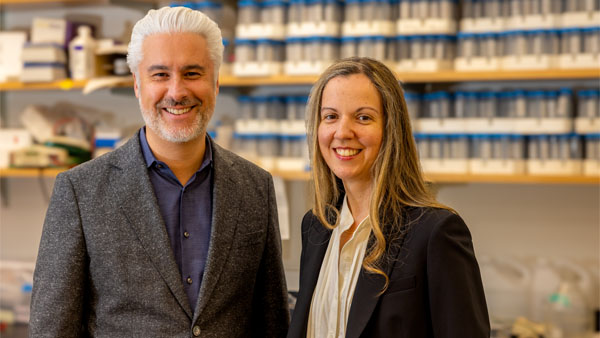
Together, these complementary groups will join forces to understand the spatial interactions between cancer cells and immune cells in primary and metastatic brain tumors, with the goal of informing the development of next-generation treatments. In addition, they will partner with CAR T researchers Marcela Maus, MD, PhD, and Bryan Choi, MD, PhD, who have developed novel immune cell-based treatment for glioblastoma, to better understand how these engineered immune cells attack the cancer cells. Applying this unprecedented level of cellular analysis to brain tumors will help create a foundation for better and more effective treatments.
Targeting intrinsically disordered protein domains in cancer
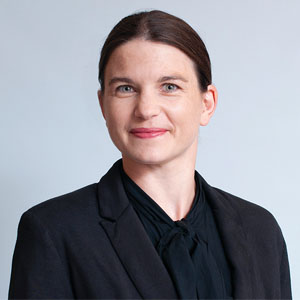 Esther Rheinbay, PhD
Esther Rheinbay, PhD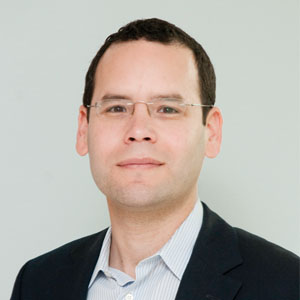 Miguel N. Rivera, MD
Miguel N. Rivera, MDProteins are composed of subunits known as domains that are often associated with specific functions. While most well annotated domains have distinct three-dimensional structures, up to 30% of proteins in the human genome contain long polypeptide chains without any discernible structure, which are known collectively as intrinsically disordered regions (IDRs). Despite their abundance, IDRs have not been studied systematically and remain poorly understood. Several recent studies, however, have shown that IDRs play important roles in driving the formation of specific cancers, including sarcomas and endocrine cancers. This, combined with the fact that there are no drugs or therapies that target IDR-containing genes, presents a new and exciting opportunity for cancer therapy.
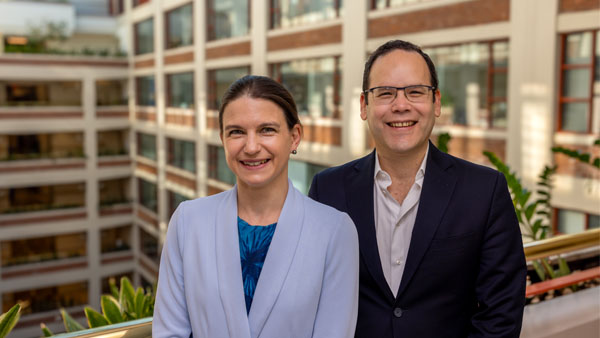
By augmenting the Rivera Lab’s pioneering work on understanding the molecular function of IDRs with the Rheinbay Lab’s computational genetic expertise, this team will systematically evaluate the role of IDRs in cancer through a combination of mutation analysis, disordered domain profiling and functional characterization. The initiative includes mapping the landscape of critical IDRs involved in cancer by using improved computational IDR prediction algorithms to create a high-resolution annotation of the cancer genome. This will be followed by testing the role of selected IDRs in promoting the growth and survival of cancer cells. The team believes that these proposed experiments will provide an unprecedented opportunity to define new critical cancer-forming mechanisms and test their value as new therapeutic targets.
Discovering how functional molecular networks are driving treatment resistance in certain cancers
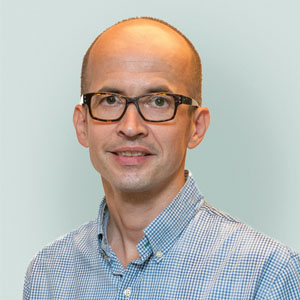 Wilhelm Haas, PhD
Wilhelm Haas, PhD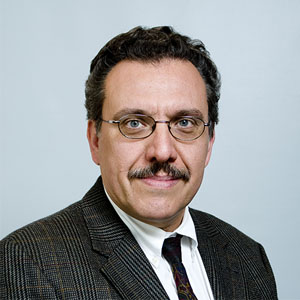 Othon Iliopoulos, MD
Othon Iliopoulos, MD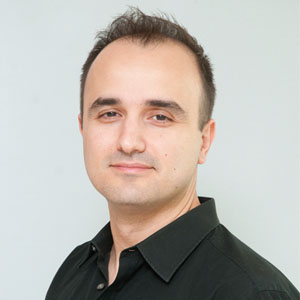 Mo Motamedi, PhD
Mo Motamedi, PhDVon Hippel-Lindau (VHL) disease is an inherited disorder that causes tumors and cysts to grow in certain areas of the body, including the brain, spinal cord, kidneys, eyes and adrenal glands. The disorder is linked to two genetic mutations: the inactivation of a tumor suppressor gene and the abnormal expression of hypoxia inducible factor 2a (HIF2a), a protein that is a master regulator of tumor formation, metabolism, growth and metastasis. These two genes are also drivers of non-inherited forms of kidney and brain cancers called hemangioblastomas. The recent development and FDA approval of belzutifan, a HIF2a inhibitor, has changed the treatment landscape of VHL-associated cancers. However, even though belzutifan keeps the disease in check in 60 percent of the patients, in 15-20 percent of cases, treatment resistance emerges within one to three years of therapy.
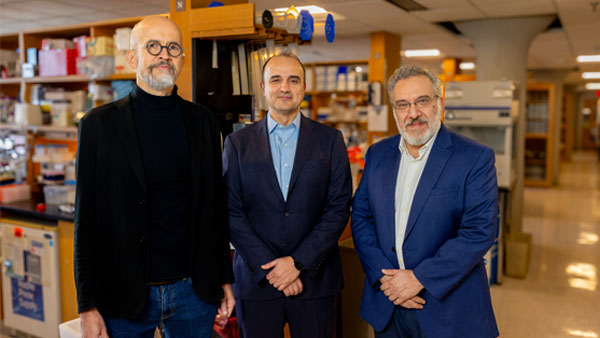
Now, this team of researchers is tackling the molecular mechanisms that establish belzutifan resistance in VHL patients. In a preliminary study, they have found that sensitivity or resistance to belzutifan in kidney cancer is affected by how cells reshape interactions between multiple proteins. The goal of this initiative is to discover and validate how changes to HIF2a interactions in VHL cells promote belzutifan resistance and then leverage these findings into meaningful strategies for overcoming resistance in this difficult-to-treat family of cancers. They also foresee that the lessons learned from VHL treatment can be applied to enhance belzutifan activity for the treatment of several other cancers.
Using Patient-Microbiome Avatars and Spatial Transcriptomics to Increase the Efficacy of Cancer Immunotherapy

Francesca S. Gazzaniga, PhD
Assistant Professor of Pathology, Mass General Cancer Center
Assistant Professor of Pathology, Harvard Medical School
Leveraging Histone Mutants to Uncover Epigenetic Vulnerabilities in Cancer
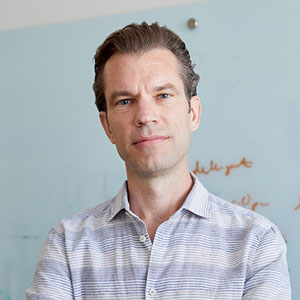
Konrad Hochedlinger, PhD
Professor of Medicine, Massachusetts General Hospital
Professor of Genetics, Harvard Medical School
Gerald R. and Darlene Jordan Endowed Chair for the Center for Regenerative Medicine
Generative AI models for deciphering cancer regulatory logic and targeted therapeutic applications

Luca Pinello, PhD
Associate Professor of Pathology, Mass General Cancer Center
Associate Professor of Pathology, Harvard Medical School
Killing the Unkillable: Deciphering Novel Paradigms to Treat p53-Mutant Cancers
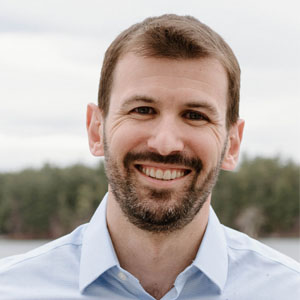
Peter Miller, MD, PhD
Assistant Professor of Medicine, Mass General Cancer Center
Assistant Professor of Medicine, Harvard Medical School
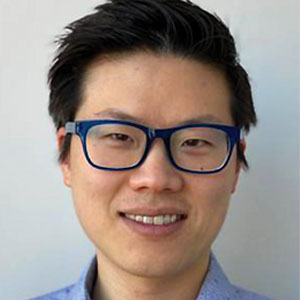
Eugene Oh, PhD
Assistant Professor of Medicine, Mass General Cancer Center
Assistant Professor of Medicine, Harvard Medical School
Comprehensive and cost-effective WGS-cfDNA assay: Breakthrough in ability to develop clinical genomic biomarkers and discover resistance mechanisms
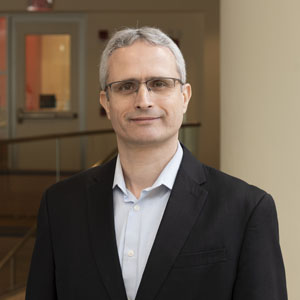
Gad A. Getz, PhD
Director of Bioinformatics, Mass General Cancer Center
Professor of Pathology, Harvard Medical School
Director, Cancer Genome Analysis, The Broad Institute of MIT and Harvard

Doğa Gülhan, PhD
Assistant Professor of Medicine, Mass General Cancer Center
Assistant Professor of Biomedical Informatics, Harvard Medical School

Anthony John Iafrate, MD, PhD
Vice Chair of Pathology for Academic Affairs
Austin L. Vickery, Jr. Professor of Pathology, Harvard Medical School
SONY SH800 FACS cell sorter
Advanced single cell sorting capability to support both chemical screens for new anti-cancer agents, as well as sophisticated single cell immunological studies.
Vi-cell counter
Technological platform for rapid cell counting in the setting of drug or genetic interventions.
Microplate reader
Advanced sensing device for rapid measurement of multiple experimental data sets, with specific use in anti-cancer drug screens.
Multicolor ddPCR system
Specialized sensor that enables highly sensitive measurements of RNA or DNA in biopsy specimens, with the capacity to detect multiple genes simultaneously.
Nanoparticle size reader
Sophisticated measurement device for small exosomes in blood and other fluids that are shed by cancer cells and contain genetic information.
When you support us you are enabling discoveries that will lead to effective new weapons in the battle against cancer.
The inaugural class of awardees will receive more than $6 million in funding to accelerate groundbreaking cancer research.
The newly named Krantz Family Center for Cancer Research will empower Mass General Cancer Center researchers to tackle the major unsolved challenges in oncology.
The 2024 class of awardees will receive more than $6 million in funding to accelerate groundbreaking cancer research.
The inaugural class of awardees will receive more than $6 million in funding to accelerate groundbreaking cancer research.
The newly named Krantz Family Center for Cancer Research will empower Mass General Cancer Center researchers to tackle the major unsolved challenges in oncology.
The 2024 class of awardees will receive more than $6 million in funding to accelerate groundbreaking cancer research.
The inaugural class of awardees will receive more than $6 million in funding to accelerate groundbreaking cancer research.
The Krantz Family Center for Cancer Research serves as the scientific engine for discovery for the Mass General Cancer Center.